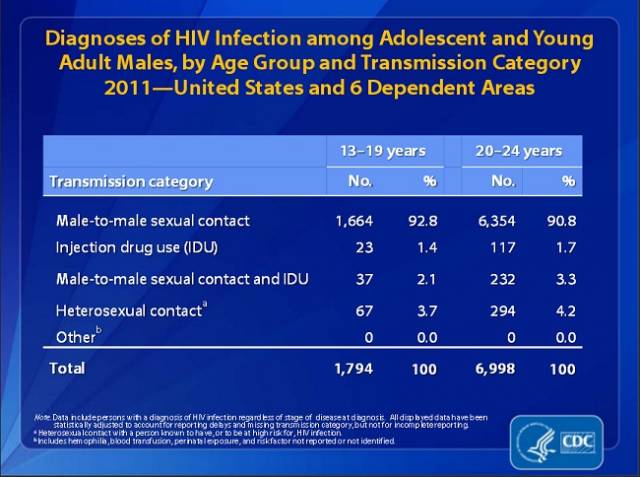Christian Liberty
Well-known member
Simply, No. The Gospel is not Calvinism.
I do not say that the gospel is Calvinism. But Calvinism is certainly the most logically consistent application of the gospel.
And this kind of "gospel" or part of the gospel doesn't apply to children.
Sure it does. Romans 3:23 and Romans 3:11 apply to children.
But I've seen it preached to children as a result of Calvinist nonsense,
with the result of leaving children and young teens terrified and confused.
The way is narrow.
This kind of misunderstanding of Paul's difficult teachings meant for
adult Israelites of the Diaspora and God-fearing Gentiles, who were
seeking a worldview to make sense of the Jewish-Roman War
and persecution by their own religious authorities has no place in
a universal Gospel meant to be taken to the ends of the earth.
I don't know what you are talking about. You sound like the objector in Romans 9:19, which Paul answers in Romans 19:20-22.
Again No. Applying blindly and willy-nilly every teaching and precept
to every situation is a disaster. The example teachings here were given
to apply to the Mosaic and Christian communities and within them,
to maintain peace and order within the Covenant-group and Church.
I'm not sure I understand this, but I will note that the church is the closest thing to OT Israel, not the State (See 1 Corinthians 5 for how sexual sinners outside the church are supposed to be dealt with.)
In the case of Moses, there were a separate set of rules of Warfare,
and an additional set of rules for law enforcement and political and
military infrastructure in the nation and community, with or without a king.
There was no king at first, and so the moral law applied equally to every individual without exception, as well it should.
Israel's wars were unique in that God specifically ordained them.
In the case of the Christian community of saints and followers,
again there was one set of rules for members and families, and
another set of rules for outsiders and relationships and dealings with them.
These Intra-community rules were not meant to be extended into universal rules
for living inside and outside the Christian community. Rather the more accurate truth
is given right within Jesus' commandments and observations in His
final concentrated teaching in the last chapters of John's Gospel:
" I give you a new commandment, that you love one another.
Just as I have loved you, you also should love one another.
By this everyone will know that you are my disciples,
if you have love for one another.”
- John 13:34-35
Although Jesus in Matthew talks about loving loving one's 'enemies',
within the Christian or loyal God-fearing remnant of Israel and Gentiles,
and even extending this teaching to former 'friends', relatives and families
in the larger Jewish community during the heart-rending strife and separation
caused by the rejection of the Messiah by half the population,
the teaching to love 'enemies' is really an additional option or ideal
to be applied on the front line by loyal Christian adult leaders and
parties committed to converting as many of the remaining Jews as possible,
before the Great and Terrible Day of Jerusalem's destruction.
Here in John the REAL universal core principle and minimum standard is
shown and made clear, namely that Christians will be known,
not by loving their enemies, although those are noble sentiments,
but by practically loving those WITHIN their own community,
as a sign to outsiders of what one may have guaranteed access to
if one joins the community.
A Christian's loyalty is not to uncommitted and unbridled humanity,
although future Christians will be harvested from that pool.
A Christian's loyalty and love is to the Christian community,
and the requirements to qualify for that favour is to repent and
become a Christian.
I am really confused by this whole section of your post.
And more importantly, recognize that while Christians can cleverly
take advantage of existing secular and satanic political and military systems,
for the furthering of the Gospel, democracy or any other form of
government is an abomination. other than Theocracyand part of
the earthly kingdom which is being invaded and destroyed without hands
by the Invisible Kingdom of the Christ.
There can be no loyalty to democracy or any other form of rule,
which is not Biblically based, and which is indeed passing away rapidly.
I agree with most of this.
The only part I don't agree with is to say that theocracy is only good if Jesus Christ himself is the King. There is no earthly man who has authority to institute it, and for any man to institute it would be in violation of Biblical principles.
I'd also change "government" to "The State." Sometimes those terms are used interchangeably, but to voluntarists such as myself the distinction makes a big difference, so I'll just point it out. This is also how Reformed Libertarian C Jay Engel is able to confirm the LBCF section on the civil magistrate, while supporting voluntarism/anarcho-capitalism at the same time.
While having children is 'good', its not essential, and
in the End Times, many will choose to be Eunuchs for the Gospel's sake.
Never lose sight of basic Christian strategies and tactics
which are needed in tough times.
I didn't mean to imply having children is a moral obligation, heck I don't have any. I just meant to say that if one does have children, he should teach his children ethics.
And one of the political ethics Christians are obligated to teach is
the vision of Daniel, that of the earthly kingdoms coming to a crashing end,
along with all political systems that don't calculate God and Christ into the
equation.
Agreed. Incidentally, in many political debates I'm the one quoting scripture and I have actually had conservative Christians tell me that the Bible shouldn't be or at least doesn't need to be quoted in a political debate.
While big government is bad, the Gospel, and the agenda of God,
has nothing to do with the promotion of minimal government or
self-government or any other political agenda.
God's agenda is already determined by His announcement of
the destruction of ALL earthly systems.
You're saying a couple of different things here so we need to back up.
I agree that The Gospel is not a political agenda of any kind, and in fact I was very specific about this when I made my original post.
That said, The Gospel certainly has political implications. The fact that all men are sinners certainly applies to government agents, as do the ten commandments and the rest of God's commands.
As for minimal government and self-government:
I don't support "minimal government" if by that you mean a minimal state. Although that would be a step in the right direction, I do not believe the State should exist at all, and I believe all of its functions can be replaced through voluntary interactions on the free market. Which I guess would mean "self-government" in a temporal sense. However, I don't believe this because I think man is autonomous. Jesus clearly has the right to rule. I don't think God has given man authority to usurp this role and act aggressively toward his fellow man in the name of "law."
No it can't. It leads to complete anarchy, as all unsupervised monetary
systems do.
I don't necessarily view "anarchy" as a bad thing. Define the term.
And the Gospel has nothing to do with the promotion of the absurd
political-economic theory of a "free market".
You have confused the Gospel and its strict and narrow path,
with the wide path of destruction that leads to the concentration of
wealth in the hands of a handful of idiots.
When Jesus comes, all that gold will be cast in the streets,
because it will become radioactive and poisonous.
Do you know the difference between free-market capitalism and the corporatism we live under now? An actual free market would have far less wealth disparity than there is now, because government would not be helping certain parties over others, and everyone would have the right to compete.




